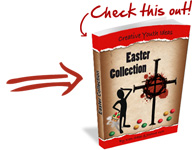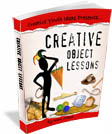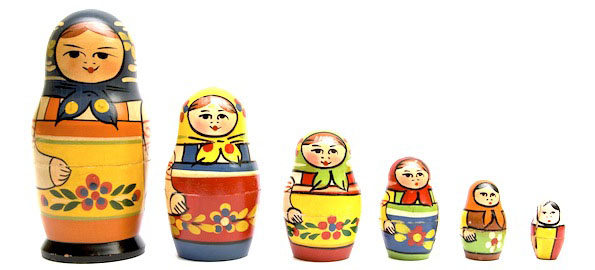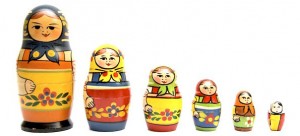Father’s Day is coming and we thought we’d pull out our “toolbox” of ideas you can use to demonstrate the many roles fathers play in the family. You could use this as a sermon illustration or object lesson for the Father’s Day weekend. We wish all our fathers out there a very blessed and fulfilling Father’s Day!
Resources
- You may wish to bring a toolbox with all the items below as object lessons for this teaching idea.
What to Do
Many fathers have a toolbox. Inside the toolbox you will find many tools. And some of the tools in the toolbox make good metaphors for what a Father does.
In a tool box you find many different types of tools. Tools for:
- Measuring: A measuring tape, a ruler – God’s Word, as taught by fathers become the standard by which we measure right and wrong.“Fix these words of mine in your hearts and minds; tie them as symbols on your hands and bind them on your foreheads. TEACH THEM TO YOUR CHILDREN, talking about them when you sit at home and when you walk along the road, when you lie down and when you get up. Write them on the doorframes of your houses and on your gates, so that your days and the days of your children may be many in the land the Lord swore to give your ancestors, as many as the days that the heavens are above the earth.” – Proverbs 11:18-21
“Honor your father and your mother, so that you may live LONG in the land the Lord your God is giving you.” – Exodus 20:12
- Aligning: Square, A level, A Plumbline – Commands and teaching of our parents guide us to living the straight and narrow way.“My son, keep your father’s command and do not forsake your mother’s teaching. Bind them always on your heart; fasten them around your neck. When you walk, they will GUIDE you; when you sleep, they will watch over you; when you awake, they will speak to you. For this command is a lamp, this teaching is a light, and correction and instruction are the way to life” – Proverbs 6:20-23
- Connecting: Stapler, Hammer, Screwdriver, Duct tape – Fathers strive to connect us with God and to live right with others.“From one man He made every nation of men, that they should inhabit the whole earth; and He determined the times set for them and the exact places where they should live. God did this so that men would seek Him and perhaps reach out for Him and find Him, though He is not far from each one of us.” – Acts 17:26-27
- Cutting: Saw, Knife, Plyers – Fathers teach us the words of God“For the word of God is alive and active. Sharper than any double-edged sword, it penetrates even to dividing soul and spirit, joints and marrow; it judges the thoughts and attitudes of the heart.” – Hebrews 4:12
- Tightening / turning: Wrench, a spanner, a clamp, Plyers – Fathers seek to turn our attention to God, just as our heavenly Father turns our attention to our Fathers.
“He will turn the hearts of the fathers to their children, and the hearts of the children to their fathers…” – Malachi 4:6 - Shaping: Chisel, Sandpaper, files – Father’s shape our character and our values through their examples, through discipline, and through training.
“As iron sharpens iron, so one person sharpens another.” – Proverbs 27:17
“Endure hardship as discipline; God is treating you as sons. For what son is not disciplined by his father?” – Hebrews 12:7
“My son, do not despise the LORD’s discipline and do not resent his rebuke, because the LORD disciplines those he loves, as a father the son he delights in.” – Proverbs 3:11-12
Summary
In summary, our fathers are like tools, building each of us into the person that God intended. They gives us examples and truths so that we can not only measure our lives, but we can align them to God’s purpose and truth. They connect us to God and others. As they instill the word of God in our lives and discipline us, the truth cuts, shapes and sharpens us to be more effective children of God.
There’s a great passage on the role of fathers in 1 Thessalonians 2:11-12
“For you know that we dealt with each of you as a father deals with his own children, encouraging, comforting and urging you to live lives worthy of God, who calls you into his kingdom and glory.”
ENCOURAGING, COMFORTING, AND URGING THEM TO LIVE LIVES WORTHY OF GOD, WHO CALLS THEM INTO HIS KINGDOM AND GLORY.
Scripture References
Here’s some more scriptures on Fathers:
“Listen, my sons, to a father’s instruction; pay attention and gain understanding.”
– Proverbs 4:1
“Listen to your father, who gave you life, and do not despise your mother when she is old. Buy the truth and do not sell it – wisdom, instruction and insight as well. The father of a righteous child has great joy; a man who fathers a wise son rejoices in him.”
– Proverbs 23:22-24
“Children, obey your parents in the Lord, for this is right. ‘Honor your father and mother’ – which is the first commandment with a promise – ‘so that it may go well with you and that you may enjoy long life on the earth. Fathers, do not exasperate your children; instead, bring them up in the training and instruction of the Lord.'”
– Ephesians 6:1-4
“Children, obey your parents in everything, for this pleases the Lord.”
– Colossians 3:20
“A wise son heeds his father’s instruction…”
– Proverbs 13:1
“A wise son brings joy to his father, but a foolish man despises his mother.”
– Proverbs 15:20
“As a father has compassion on his children, so the LORD has compassion on those who fear him.”
– Psalm 103:13
“But you, O God, do see trouble and grief; you consider it to take it in hand. The victim commits himself to you; you are the helper of the fatherless.”
– Psalm 10:14
“Yet, O LORD, you are our Father. We are the clay, You are the potter; we are all the work of Your hand.”
– Isaiah 64:8
“Praise be to the God and Father of our Lord Jesus Christ, the Father of compassion and the God of all comfort, who comforts us in all our troubles, so that we can comfort those in any trouble with the comfort we ourselves have received from God.”
– 2 Corinthians 1:3-4
Take It to the Next Level
Each one of us has different experiences with our father. Some of us have been blessed with a godly father and we need to thank Him for that gift. But the Bible is also full of fathers that were less than perfect. If your experience with your father has been difficult you can find peace and comfort from God the Father. As Christians we all celebrate Father’s Day knowing that we have become a child of the everlasting heavenly Father who is perfect in compassion, strength, and care in every way.
 Holiday Collection
Holiday CollectionGames and Activities in Celebration of common Holidays.
Creative Holiday Ideas has over 300 pages of ideas to help you plan not only your next Father’s Day event, but also other common holidays. If you’ve ever wondered what you’re going to do for the holidays and how you’re going to do it, this resource is for you.
=> Tell me more about the Holiday Collection


 Finding one’s identity, purpose, and meaning in life are common struggles that every youth faces. They are seeking an answer to the question, “Why am I here?” In their search for purpose, they may try to find fulfillment in a variety of things, some good, some bad. But our purpose cannot be found in things. Our identity is found by filling the emptiness in our lives with Christ. When God’s Hand is at work in our lives, only then will we find true meaning and purpose. Gloves are a great object lesson to remind youth of this spiritual truth and a simplified version of this lesson makes a great Children’s Sermon.
Finding one’s identity, purpose, and meaning in life are common struggles that every youth faces. They are seeking an answer to the question, “Why am I here?” In their search for purpose, they may try to find fulfillment in a variety of things, some good, some bad. But our purpose cannot be found in things. Our identity is found by filling the emptiness in our lives with Christ. When God’s Hand is at work in our lives, only then will we find true meaning and purpose. Gloves are a great object lesson to remind youth of this spiritual truth and a simplified version of this lesson makes a great Children’s Sermon.




 Description
Description